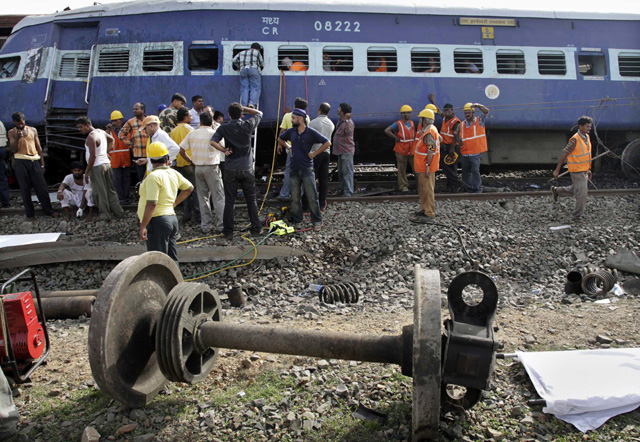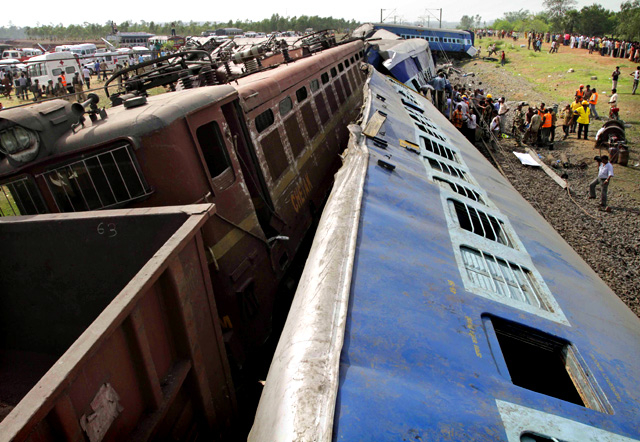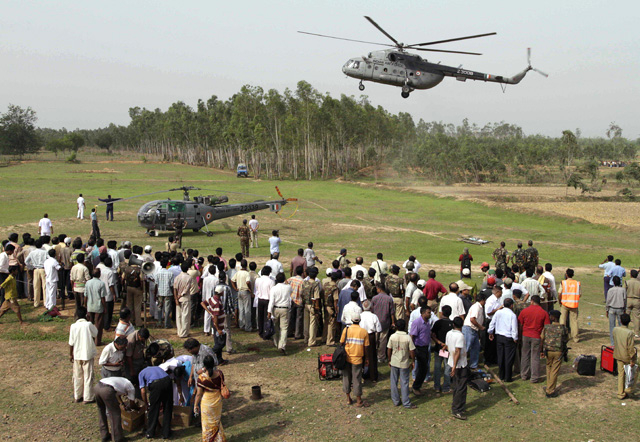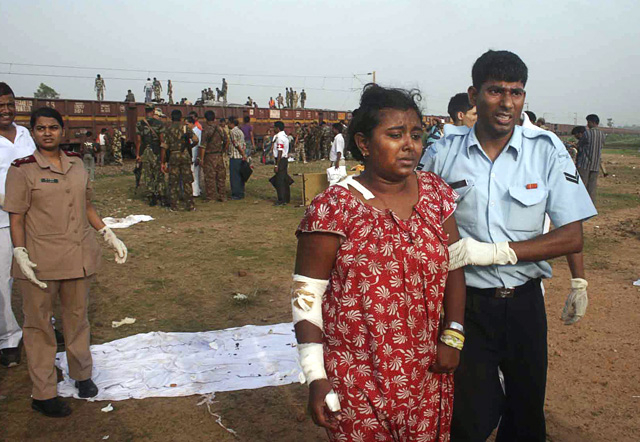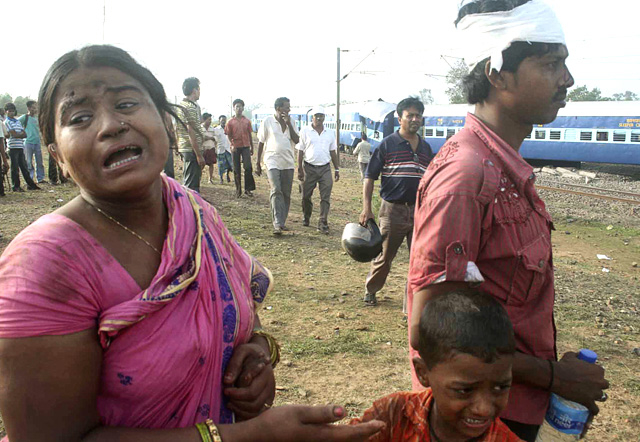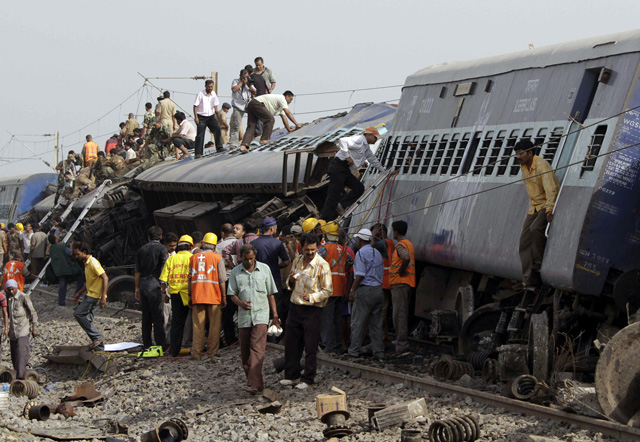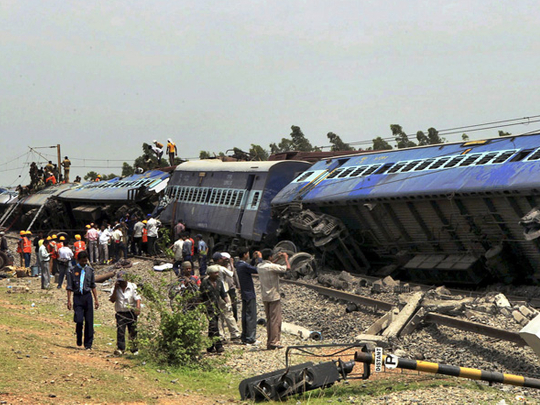
Kolkata: A bomb apparently planted by Maoist rebels derailed an overnight passenger train that was then hit by a cargo train in eastern India on Friday, killing at least 65 people and injuring an additional 200, officials said.
The passenger train was traveling from Calcutta to the Mumbai suburb of Kurla when 13 cars derailed in a rural part of West Bengal state near the small town of Sardiha, about 150 kilometres west of Calcutta. A cargo train then slammed into three of the cars from the other direction, Railway Minister Mamata Banerjee said.
A.P. Mishra, general manager of the railway system in that area, said the train had been derailed by a bomb and that the rail tracks had also been sabotaged. Banerjee said authorities suspected that the bomb was planted by Maoist rebels.
Rescuers at the scene used gas cutters to free passengers trapped in mangled coaches.
West Bengal state Home Secretary Samar Ghosh said 65 people were confirmed dead after the derailment and more than 200 people were injured.
Medics brought at least 30 bodies to a nearby railway hospital in the town of Kharagpur, said E. Mitra, a doctor at the hospital.
The derailment took place in an isolated, rural stronghold of India's Maoist rebels, known as Naxalites, who have stepped up attacks in recent months and had called for a four-day general strike starting Friday.
Earlier this month, the rebels ambushed a bus in central India, killing 31 police officers and civilians.
The rebels, who have tapped into the rural poor's growing anger at being left out of the country's economic gains, are now present in 20 of the country's 28 states and have an estimated 10,000 to 20,000 fighters, according to the Home Ministry.
Reuters adds:
Railway Minister Mamata Banerjee said a bomb had hit the train. Police said they were also looking at other sabotage methods such as removal of the tracks' "fish plates".
The crash occurred in West Bengal state in an area known to be a stronghold of Maoist rebels, but involvement of Maoists has not been confirmed.
The Maoists, which number thousands of fighters across swathes of eastern and central India, have stepped up attacks in the last year. In April, 76 police were killed in an ambush in one of the heaviest tolls in years.
Prime Minister Manmohan Singh has described the insurgency as India's biggest internal security challenge and his Congress-led government has been under increasing political pressure to deal with the insurgents.
The passenger train was going to Mumbai from the eastern metropolis of Kolkata in West Bengal state. The incident occurred in the state's Jhargram area at around 1:30 a.m. (2000 GMT).
"From whatever I have been told the apprehension is the Maoists were involved," Mamata Banerjee said.
Trapped passengers
A reporter of the Telegraph newspaper described a scene of chaos and panic at the site.
"People are crying. Rescuers are struggling to save the survivors and get the bodies out," Naresh Jana told Reuters.
"I can see body parts hanging out of the compartments and under the wheels. I can hear people, women, crying for help from inside the affected coaches."
The incident comes days after a passenger airliner crashed in southern India, killing 158 people, underscoring safety issues and concern that India's ageing infrastructure was failing to keep pace with an economic boom.
The Maoists, who say they are fighting for the rights of the poor and landless, have attacked trains in the past, mostly in eastern India.
In March, police suspected their hand in the derailment of India's most prestigious high-speed Rajdhani Express. Maoists have also taken over trains in past years in a show of strength, holding them for hours.
The rebels, who often attack police, government buildings and infrastructure such as railway stations, have in recent months stepped up attacks in response to a government security offensive to clear them out of their jungle bases.
The decades-old movement is now present in a third of the country. They are mostly spread in rural pockets of 20 of India's 28 states and hurt potential business worth billions of dollars.


